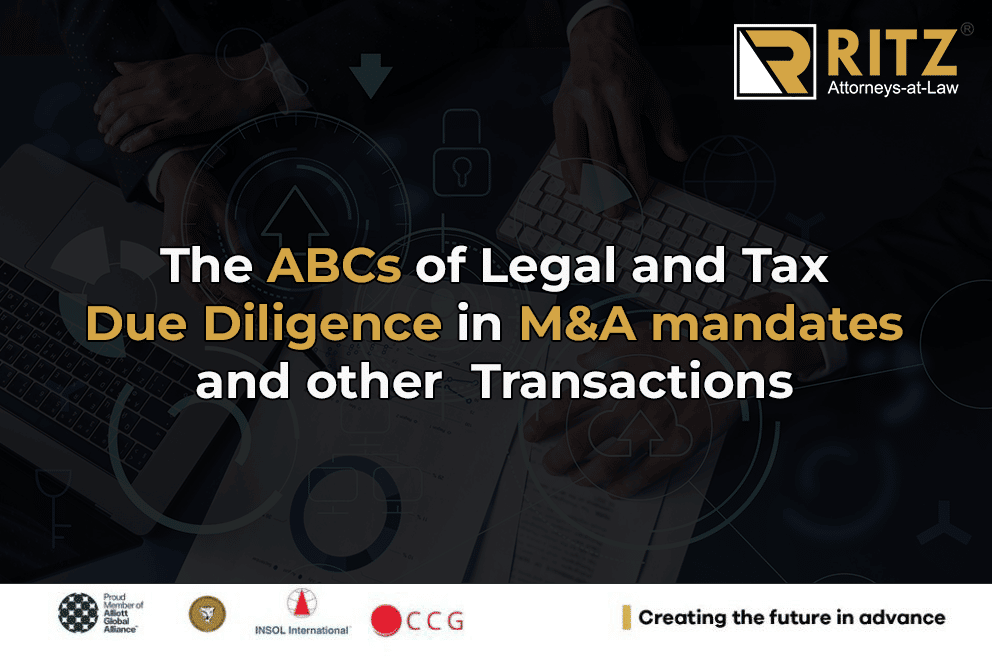Legal Due Diligence
Legal due diligence [LDD] is the process of collecting, understanding, and assessing all the legal risks associated with an M&A transaction or a financing transaction. It is a pilot step taken by an investor or an acquiring company on a target. The purpose is to assess the potential risks of a transaction by reviewing all documents, obligations, and liabilities of the target. The ending LDD report will provide information to the acquirer on financial, structural, operational, regulatory, and tax legal problems with the transaction or target. The LDD will assist the acquirer on whether to proceed with the transaction, limit risks, and/or negotiate warranties or the purchase price.
Scope of Legal Due Diligence
Legal due diligence generally covers an investigation of the following areas: corporate structure and matters, commercial contracts, employment and HR matters, intellectual property, information systems, environment, health and safety, regulatory compliance, competition, litigation, Assets and Liabilities, and tax. Tax a material cost. As such, tax due diligence of returns and tax affairs over a period plays a significant role in decision-making. It is also important to evaluate the jurisdiction context. Below is a general checklist of documents and information to be reviewed by a legal team in a due diligence assignment:
- Capitalization and shareholder structure.
- Financing.
- Company structure.
- Material contracts.
- Real assets of the target.
- Intellectual property rights of the target.
- Insolvency proceedings.
- Authorizations, approvals, and licenses for the target.
- Litigation risks.
- related party transactions.
- insurance;
- Compliance with employment contracts and HR risks
In the context of the purchase of a debt or securities, the due diligence process is undertaken by the incoming financier. The due diligence will involve an investigation of the business, financial condition, and creditworthiness of the obligor and the terms of the finance documents.
Stages for Conducting a Legal Due Diligence
Legal due diligence can be divided into three stages. Preparation, Execution, and Closure/Report.
- In preparation, the acquiring company must have reached an agreement on the mandate. The parties must have Non-disclosure Agreements (NDAs) on the information to be shared physically or in virtual data rooms and the scope and limit of the LDD. A legal due diligence team should be constituted to conduct the LDD. Depending on the requirements of the specific due diligence, the due diligence team could be multidisciplinary, including financial, legal, tax or other special areas.
- The execution stage involves the team collecting the information and evaluating it. Documents are usually provided by the target/seller in response to a specific due diligence questionnaire prepared by the legal due diligence team of the purchaser.
- The closure is the preparation and provision of the LDD report. The structure of a report depends on the scope of due diligence as may have been agreed.
- Conclusion
An acquirer should utilize the findings of the LDD report as a negotiation tool in the transaction. Where risks have been identified, the target/seller could provide warranties or indemnities to protect the purchaser from any future liabilities which may arise from these risks. Where consents and approvals are required, to assign contracts or licenses or in relation to change of control provisions or pre-emptive rights, these can be incorporated as conditions precedent in the sale and purchase agreement.




